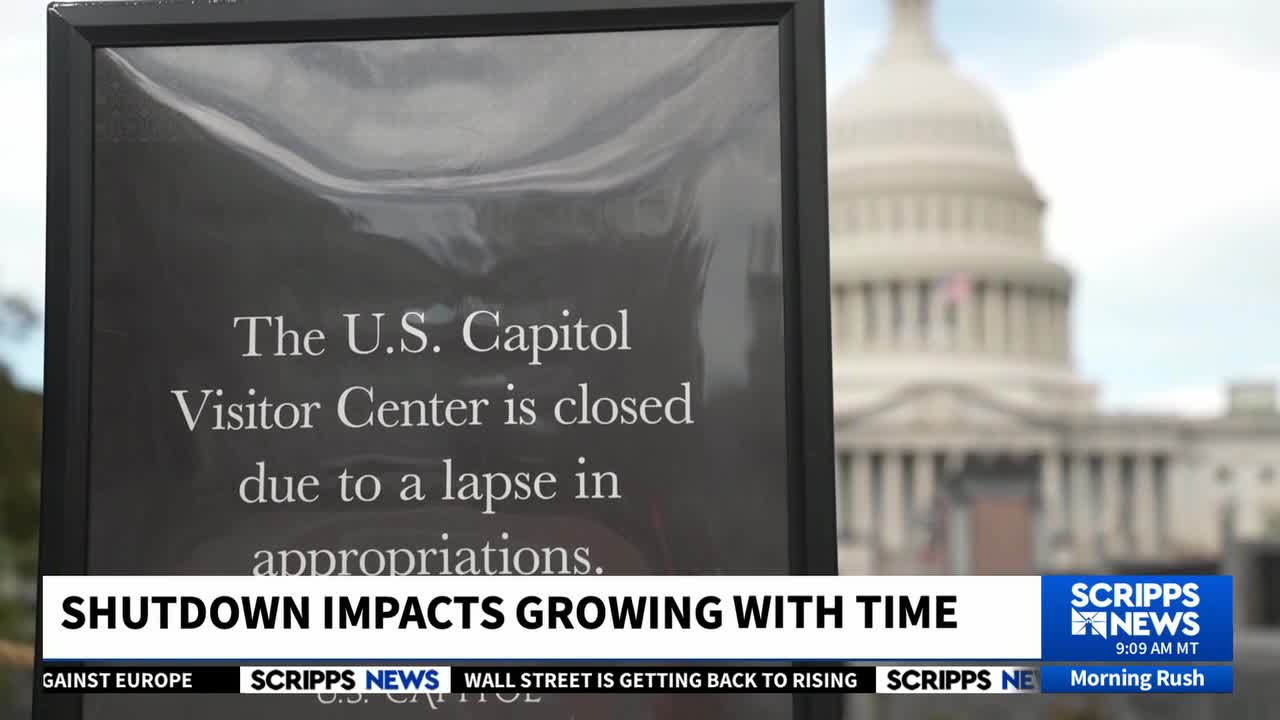The federal government shutdown has entered its eighth day, with many Americans unaffected so far. But the longer it continues, the more likely families — and the broader economy — will feel the consequences.
Friday marks the next payday for federal workers. If the shutdown continues, those paychecks will not be issued. Next week, on Oct. 15, active-duty military members are also scheduled to be paid. In a continued shutdown, those payments would also be halted.
Transportation services could see disruptions as well. A federal program that subsidizes flights to small, rural airports is expected to run out of money on Sunday, potentially canceling scheduled flights.
ADDITIONAL REPORTING | The government shutdown is starting to bite at US airports
Transportation Secretary Sean Duffy confirmed that airports nationwide have experienced an increase in sick calls from air traffic controllers. In Burbank, California, no one was available to staff the tower Monday night.
"Have we had a slight uptick in sick calls – yes," Duffy said. "And then you'll see delays that come from that."
The Trump administration has acted to keep certain programs operational. On Tuesday, the White House announced that tariff revenues will be used to continue funding WIC — the Special Supplemental Nutrition Program for Women, Infants and Children. The program provides free, healthy food to low-income pregnant women, new mothers and children, and was set to run out of money next week.
IN CASE YOU MISSED IT | White House seeks tariff funds to keep WIC program running amid shutdown
Economists warn that a prolonged shutdown could have widespread economic consequences.
"By the third or fourth week, it really starts putting a pretty big hit on certain areas," said John Diamond, economist and director of the Center for Public Finance at the Baker Institute. "... It could definitely slow the economy from a fragile state — at least a portion of the economy could be tipped into a recession."
This story was reported on-air by a journalist and has been converted to this platform with the assistance of AI. Our editorial team verifies all reporting on all platforms for fairness and accuracy."




